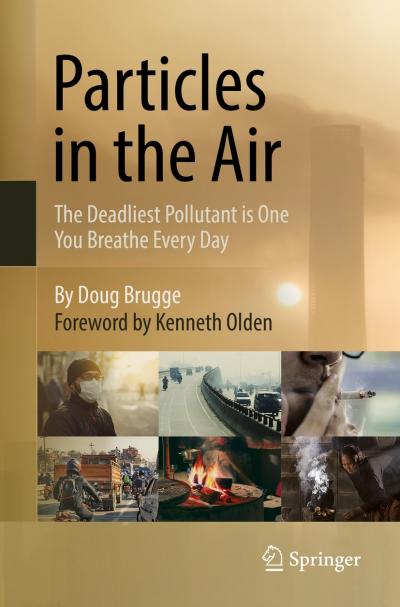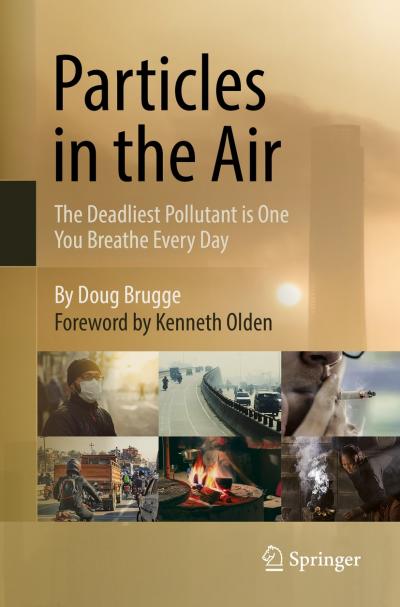
Credit: Springer Nature
Every day, every human on the planet is exposed to one of the most toxic substances we know. However, it's largely invisible and most people don't know whether they need to worry. In new book Particles in the Air, Doug Brugge aims to raise awareness of serious consequences for public health.
Doug Brugge says: "Fire has contributed to the survival and ultimate success of our species. We burn for food, warmth, light and, with the combustion engine, to get us about. However, fire has a nasty downside."
The burning process creates hot gases and tiny particles made of solids and liquids known as particulate matter. Once this is released into the air, we start to breath it in. Today we understand that particular matter not only causes respiratory diseases and lung cancer but also inflammation and heart disease. It takes a larger toll on human health than all other environmental hazards combined.
In 1959, an Indian cardiologist concluded that the smoke-filled atmosphere in which many women cooked was contributing to a high death toll from heart disease. However, 50 years later little had changed. In that time, another one hundred million people – mostly women and children – died from exposure to the same type of particles.
It wasn't until 2015 that a first national project got underway to expand the use of gas instead. It made rapid progress, but this pattern of initial scientific discovery followed by a decades-long wait to change public policy is part of the story of particulate matter.
The battles to highlight damage caused by cigarette smoke and car exhaust have been further complicated by industry lobbies prepared to fiercely protect their profits. Science is imbued with uncertainty and they exploited this trait to create doubt about the evidence. They also intimidated researchers with lawsuits and exploited the media's weakness for controversy to present their case to the public.
Today, the race is on to understand the impact on health of ultrafine particulate matter. These particles are largely unregulated despite evidence that they can become embedded in the brain. Studies show an increased risk of autism in children and more rapid cognitive decline in the elderly. Brugge asks: "How much evidence is enough to prompt action?"
###
Dr. Doug Brugge is Professor of Public Health and Community Medicine at Tufts School of Medicine. His research interests include traffic-related pollution and health, housing conditions and health, asthma, health communication, and research ethics.
Doug Brugge
Particles in the Air
1st ed. 2018, XV, 85 p. 29 illus., 25 illus. in color.
Softcover $29.99, €29.99, £16.50 ISBN 978-3-319-89586-4
Also available as an eBook ISBN 978-3-319-89587-1
Media Contact
Elizabeth Hawkins
[email protected]
49-622-148-78130
@SpringerNature
http://www.springer.com
Original Source
https://preview.springer.com/gp/about-springer/media/press-releases/corporate/there-s-no-fire-without-smoke/16198238





